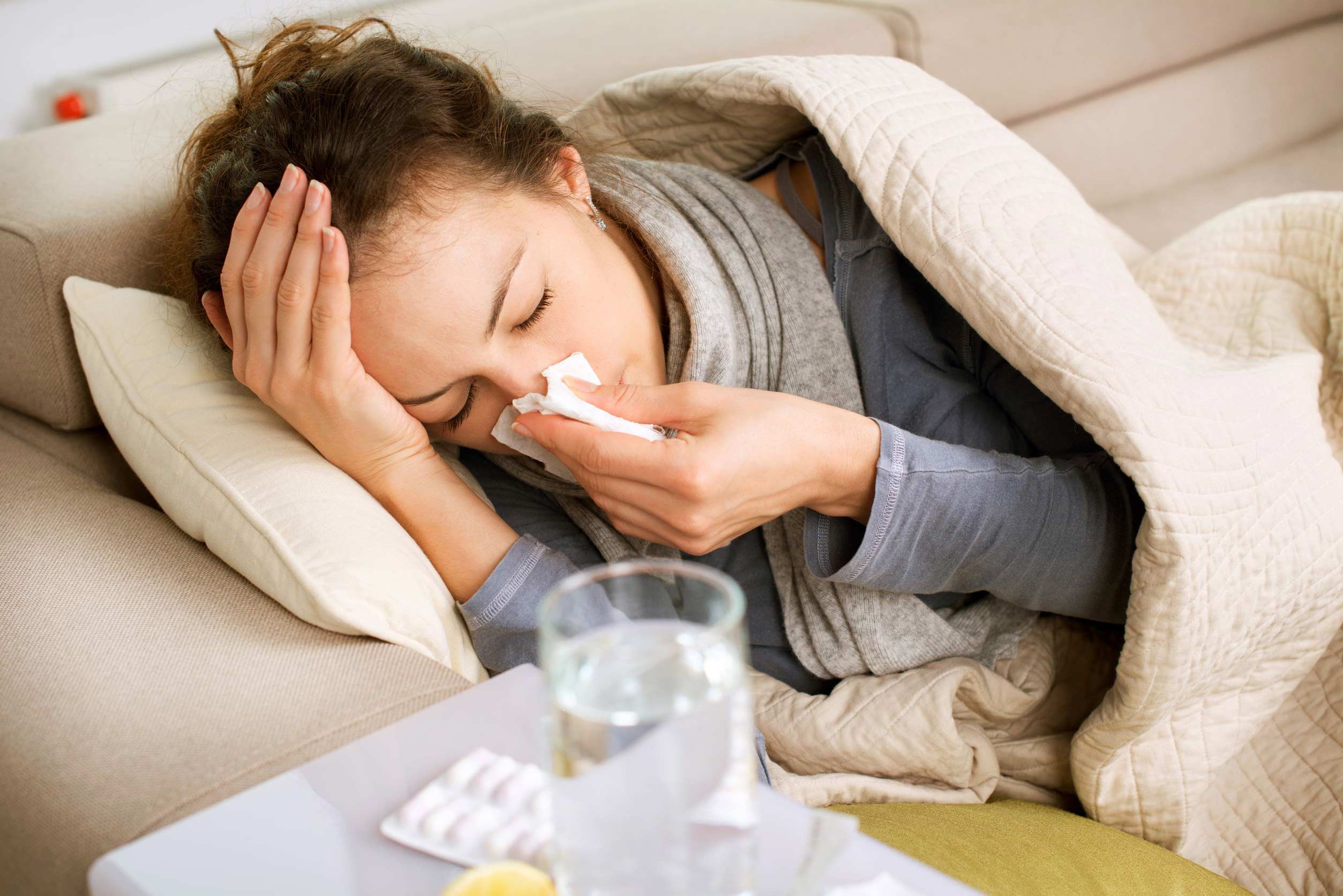To your health: COUGH AND COLD
What we commonly call a cold is a benign and frequent infection of the nose and throat. The medical term is viral rhinitis or acute rhino-pharyngitis. The cause is a virus. There are over 100 different viruses that can cause a cold.
 |
| (Photo: Internet) |
This infection is different from the flu, which is also a viral infection (influenza virus) but with more generalized and intense symptoms (high fever, body and muscle pain, fatigue, headaches).
The main symptoms of a cold include sore throat — often the first sign to arise — sneezing, nasal congestion, runny nose with clear secretions, mild tiredness, mild headache and sometimes cough and mild fever.
Colds often last longer than most people think: The average length of a cold is 10 days, but the length of symptoms can vary widely.
There are clear risk factors for catching a cold. Stress and tiredness are a very significant risk factor.
Stress weakens the immune system and makes you more vulnerable to virus infection. Smoking, too, is an important risk factor. It weakens the immune system as well and causes a local irritation, which allows virus to penetrate more easily into your body. Recent travel by flight, long exposure to dry air and the practice of very intense physical activities are also known to be risk factors for colds.
A cold is a contagious infection. Contamination occurs through saliva, nasal secretions and contaminated hands or surfaces (glass, toys etc…). The virus cannot penetrate through healthy skin but can easily enter your body through contact with mucous membranes of the nose, the mouth and the eyes. Very thin drops of infected secretions can reach your mucous membranes after someone coughs or sneezes next to you.
The incubation period is short, from 12 hours to a few days.
It is usually not necessary to see the doctor in case of a simple cold. Symptoms will clear by themselves after a few days.
In some cases, you should see your doctor. Complications are rare but possible. Symptoms like very high fever with sweats and shivering, intense ears, throat and face pain, persistent symptoms more than 10 days, and persistent cough more than seven days after all other symptoms are gone are all cause for concern and should lead you to seek the opinion of a doctor.
Treating the pesky cold
No treatment can kill the virus or make it clear faster. In most cases, a cold will clear on its own.
Antibiotics are completely useless during a cold, as they attack bacteria and not viruses. Taking antibiotics will increase the risk of side effects and will disrupt your normal bacterial flora, which can lead to more health problems. And you will not recover faster.
Instead, treatment focuses on reducing the effects of symptoms. Paracetamol (acetaminophen) is a medicine that reduces all kind of pain and lowers fevers. Ibuprofen is an anti-inflammatory medicine with the same effects. Without a doctor’s opinion, it is better to use paracetamol alone for children because they will tolerate it more easily than an anti-inflammatory medicine. Nasal sprays of saline water should be used to drain and wash the nose. In case of severe nasal congestion, use a decongestant but not for more than three days. Decongestants should not be used in young children because they might cause side effects like chronic irritation of the nose.
You should not use aspirin in case of a cold. Its action is similar as paracetamol but with more side effects. Aspirin is contraindicated for children.
About coughs, try to be patient and avoid taking anti-cough medicine. Cough is a natural symptom that helps to evacuate all the infected secretions from the bronchus. Taking an anti-cough medicine can increase the risk of infection and bronchitis. Anti-cough syrup or tablets can help only in case of very irritating dry cough.
Simple measures are very effective, too. Rest a lot, increase intake of water (at least 2 liters a day), drink hot tea and soups, gargle with warm salty water three or four times a day and drain and wash the nose as often as necessary. Take warm showers or baths and stay in a warm atmosphere.
Prevention is simple. It includes basics hygiene and lifestyle habits. Wash your hands regularly, especially before manipulating any objects or food that could be share with other person. Teach children to do the same.
Avoid sharing personal objects (glass, dishes, towel, tooth brush etc…) during the time of the infection. Cover your mouth and nose with a tissue in case of cough and sneeze. If you do not have a tissue, it is better to cover your mouth with the inside of the elbow than with your hands.
Stay home if possible, rest and avoid very close contact with your friends and family for the time of the illness.
(Source: Family Medical Practice Vietnam/ VNS)